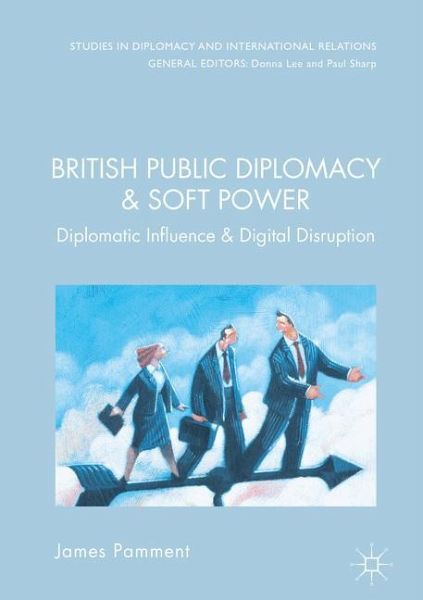
British Public Diplomacy and Soft Power
Diplomatic Influence and the Digital Revolution
Versandkostenfrei!
Versandfertig in 6-10 Tagen
113,99 €
inkl. MwSt.
Weitere Ausgaben:

PAYBACK Punkte
57 °P sammeln!
This volume outlines two decades of reforms at the Foreign & Commonwealth Office (FCO), British Council and BBC World Service - the so-called Public Diplomacy Partners. Between 1995 and 2015, the FCO and its partner organisations in promoting British influence abroad have introduced major changes to how, where and with whom diplomacy is conducted. This unique study links major organisational reforms to the changing political, technological and intellectual contexts of the day. Through detailed case studies over a 20-year period, this study demonstrates how and why British diplomacy evolved fro...
This volume outlines two decades of reforms at the Foreign & Commonwealth Office (FCO), British Council and BBC World Service - the so-called Public Diplomacy Partners. Between 1995 and 2015, the FCO and its partner organisations in promoting British influence abroad have introduced major changes to how, where and with whom diplomacy is conducted. This unique study links major organisational reforms to the changing political, technological and intellectual contexts of the day. Through detailed case studies over a 20-year period, this study demonstrates how and why British diplomacy evolved from a secretive institution to one understanding its purpose as a global thought leader through concepts such as public diplomacy, digital diplomacy and soft power. It is rich with unpublished documents and case studies, and is the most detailed study of the FCO and British Council in the contemporary period. From Cool Britannia to the recent GREAT campaign via the 2012 Olympics and diplomats on Twitter, this book charts the theory and practice behind a 21st century revolution in British diplomacy. This work will be of much interest to policymakers and advisors, students and researchers, and foreign policy and communication specialists.
"From the heady past of Cool Britannia to the present days of the Great Campaign by way of the Royal Wedding, London Olympics and multiple other gambits in Britain's evolving attempt to connect to foreign publics, this book is the essential account of the inner workings of a vital aspect of contemporary British foreign policy: public diplomacy. James Pamment is an astute, succinct and engaging Dante, bringing his readers on journey through the policy processes behind the scenes. We see the public diplomacy equivalents of paradise, purgatory and the inferno, though Pamment leaves us to decide which is which."
Nicholas J. Cull, author of 'The Decline and Fall of the United States Information Agency: American Public Diplomacy, 1989-2001'.
"A gift to practitioners who want to do the job better: required reading for anyone going into a senior job at the British Council, the UK Foreign & Commonwealth Office and enlightened thinkers at 10 Downing Street, HM Treasury and Ministries of Foreign Affairs worldwide. Authoritative, scholarly and accurate, Pamment strikes a great balance between the salient details and the overarching picture. He also does a major service to those of us who lived it; our toils make more sense for what he has done - placing them in a historical and conceptual context."
John Worne, Director of Strategy & External Relations, British Council, 2007-2015
"From the heady past of Cool Britannia to the present days of the Great Campaign by way of the Royal Wedding, London Olympics and multiple other gambits in Britain's evolving attempt to connect to foreign publics, this book is the essential account of the inner workings of a vital aspect of contemporary British foreign policy: public diplomacy. James Pamment is an astute, succinct and engaging Dante, bringing his readers on journey through the policy processes behind the scenes. We see the public diplomacy equivalents of paradise, purgatory and the inferno, though Pamment leaves us to decide which is which."
Nicholas J. Cull, author of 'The Decline and Fall of the United States Information Agency: American Public Diplomacy, 1989-2001'.
"A gift to practitioners who want to do the job better: required reading for anyone going into a senior job at the British Council, the UK Foreign & Commonwealth Office and enlightened thinkers at 10 Downing Street, HM Treasury and Ministries of Foreign Affairs worldwide. Authoritative, scholarly and accurate, Pamment strikes a great balance between the salient details and the overarching picture. He also does a major service to those of us who lived it; our toils make more sense for what he has done - placing them in a historical and conceptual context."
John Worne, Director of Strategy & External Relations, British Council, 2007-2015














